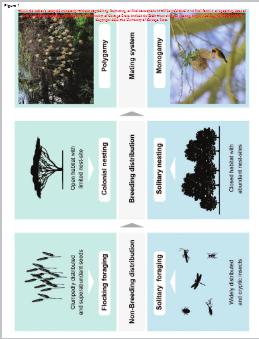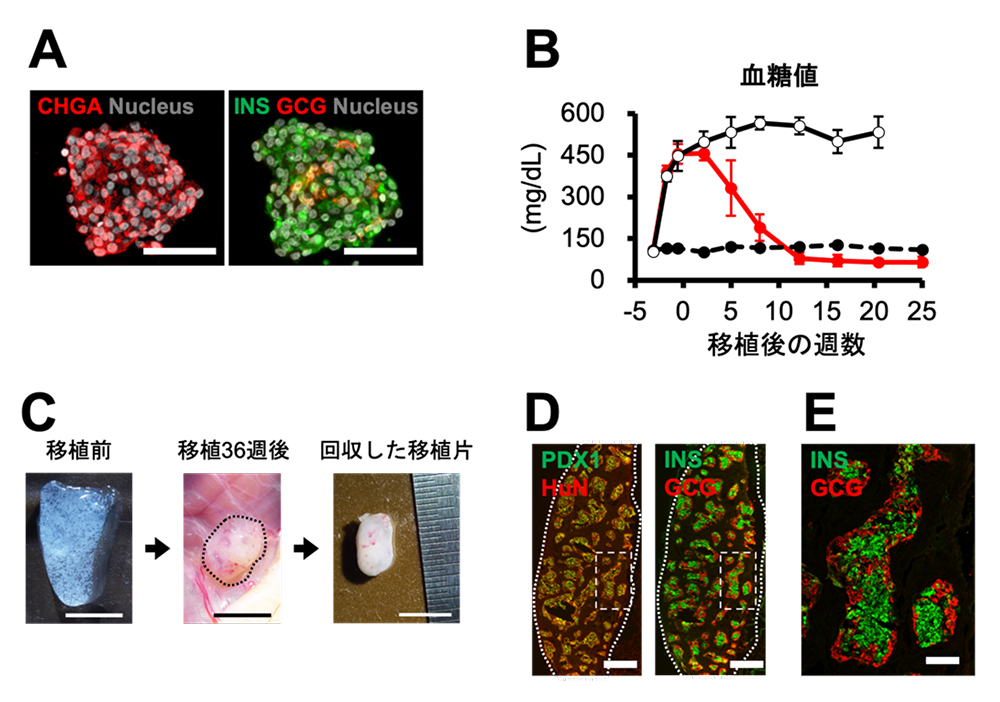2022-04-06 バース大学
研究者らは、過去に発表された多くの機織り種の研究から収集したデータをもとに、食事、生息地、社会行動との関係を調査した。
その結果、開けたサバンナに生息する鳥は群れをなす傾向があり、集団で採食することで種子の最良の供給源を見つけるのに役立っていることが確認された。また、この鳥は大きなコロニーで営巣し、各シーズンに複数の相手とペアを組む一夫多妻制の繁殖行動をとることが多かった。
一方、森林に生息する種は、単独で採食し、巣を作る傾向があり、群れを作ったりコロニーで生活することはない。これらの鳥は、季節ごとに一人の相手と交尾する一夫一婦制の繁殖行動をとる傾向があった。
さらに今回の研究では、食事と生息地が性的二型(雌雄の外見の違い)を予測することも明らかにされた。一夫多妻制の種では、雄はよりカラフルで派手な羽を持つことが多いが、一夫多妻制の種では雄も雌も同じ姿になる傾向がある。
<関連情報>
- https://www.bath.ac.uk/announcements/vegetarian-birds-more-sociable-than-insect-eaters-shows-research/
- https://www.journals.uchicago.edu/doi/abs/10.1086/720270
社会組織の進化:織物職人の生態と性淘汰の系統的解析 Evolution of social organization: phylogenetic analyses of ecology and sexual selection in weavers
Zitan Song,András Liker,Yang Liu, andTamás Székely
The American Naturalist DOI: 10.1086/720270

ABSTRACT
Crook published a landmark study on the social organization of weavers (or weaverbirds, family Ploceidae) that contributed to the emergence of sociobiology, behavioral ecology, and phylogenetic comparative methods. By comparing ecology, spatial distribution, and mating systems, Crook suggested that the spatial distribution of food resources and breeding habitats influence weaver aggregation, both during the non-breeding season (flocking vs solitary foraging) and breeding season (colonial vs solitary breeding), and the latter in turn, impacts mating systems and sexual selection. Although Crook’s study stimulated much follow-up research, his conclusions have not been scrutinized using phylogenetically controlled analyses. We revisited Crook’s hypothesesusing modern phylogenetic comparative methods on an extended dataset of 107 weaver species. We showed that both diet and habitat type are associated with spatial distribution and the latter predicts mating system, consistent with Crook’s propositions. The best supported phylogenetic path model (PPA) also supported Crook’s arguments and uncovered a direct relationship between non-breeding distribution and mating system. Taken together, our phylogenetically corrected analyses confirm Crook’s conjectures on the roles of ecology in social organizations of weavers; however, our analyses also uncovered an association between non-breeding distributions and mating systems, which was not envisaged by Crook.


